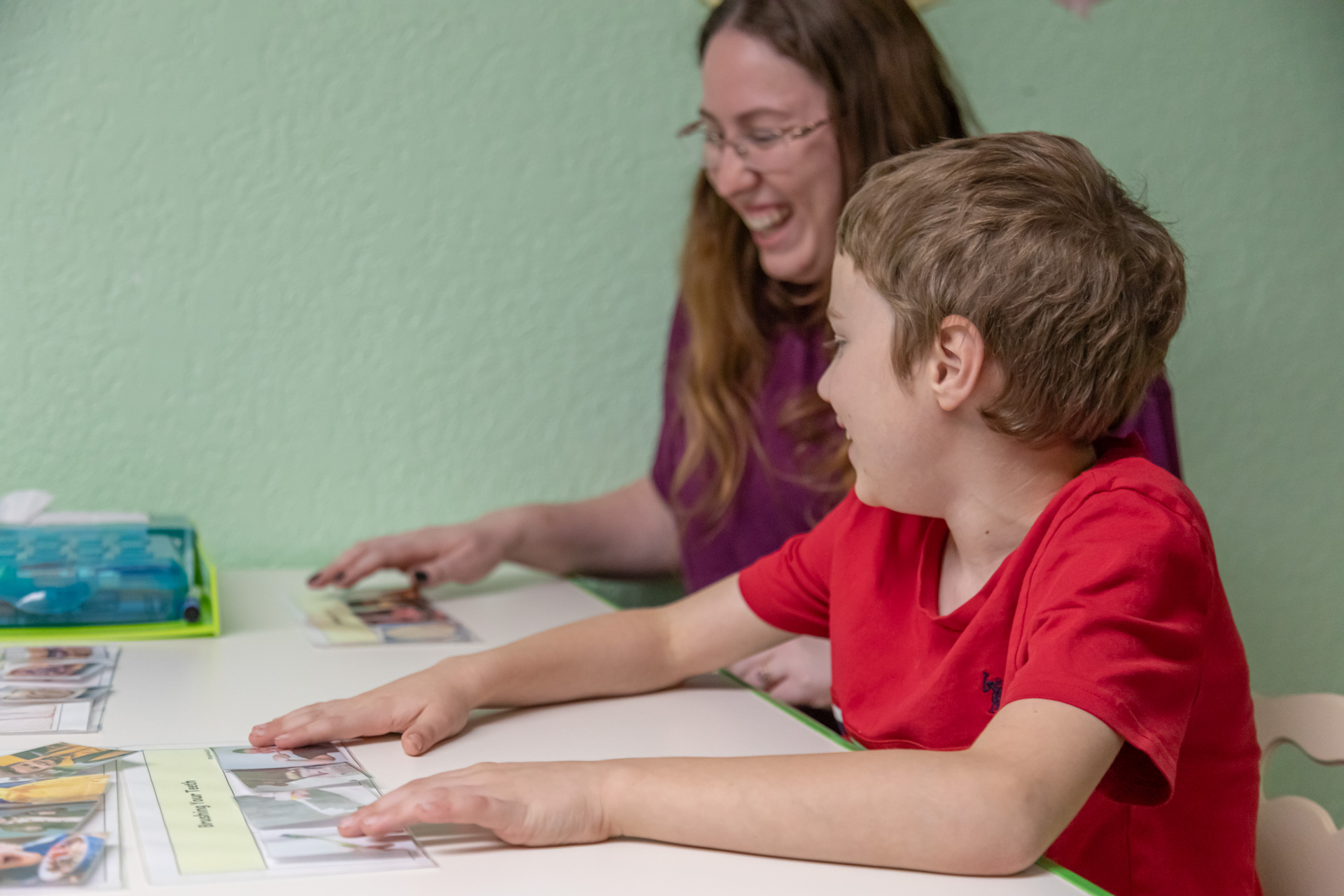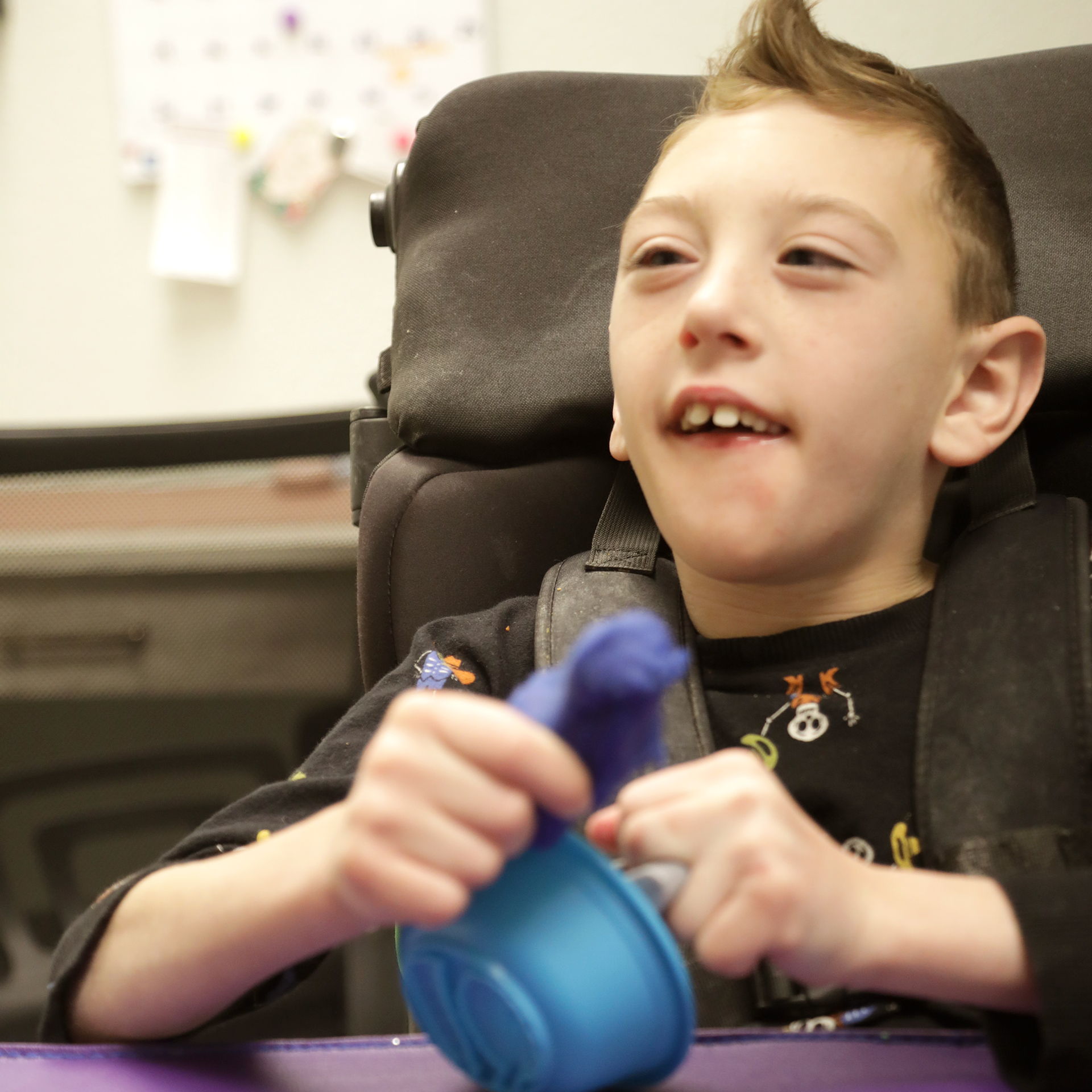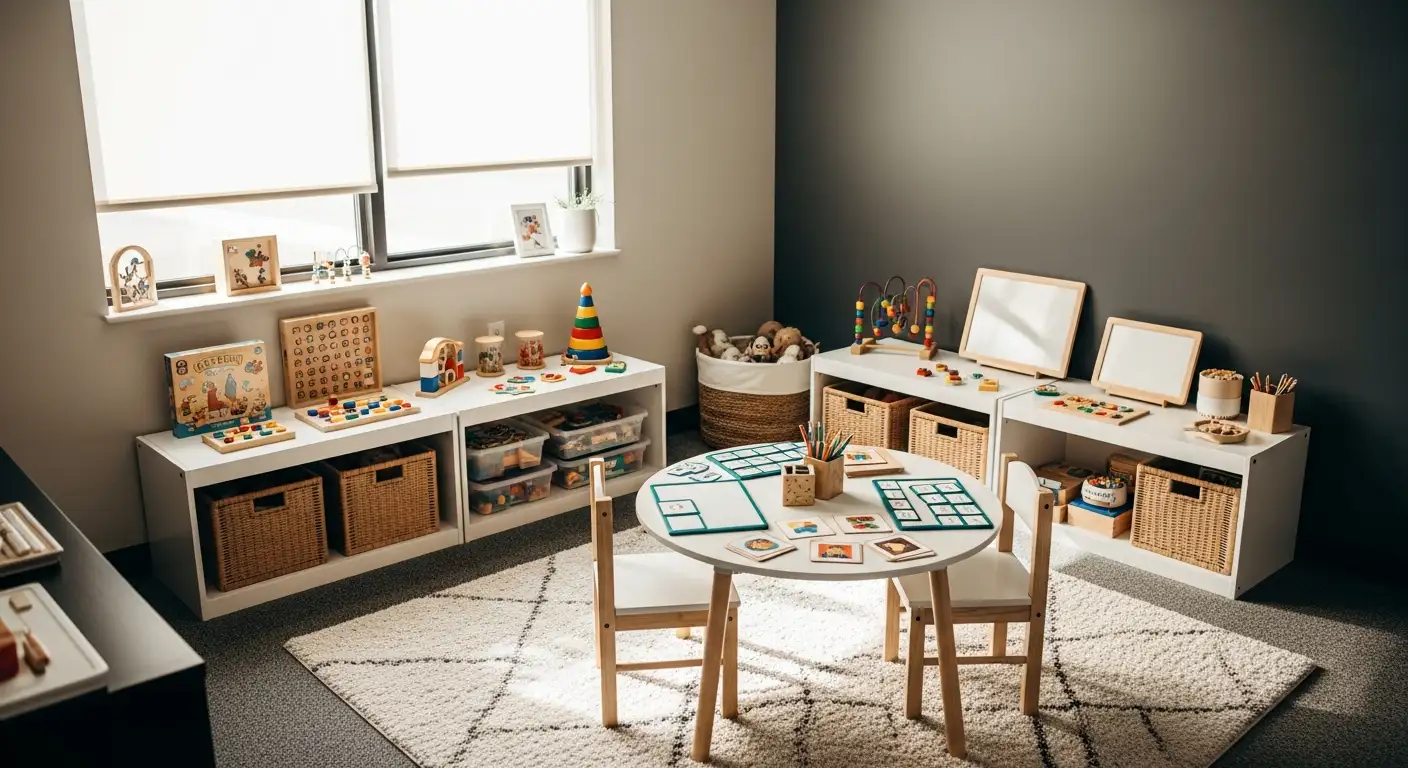Can Elderly People With Autism Need Home Care?


Understanding the Unique Needs of Elderly People With Autism
As the population of individuals with autism ages, there is a growing need to explore how best to support elderly autistic adults. Recognizing that autism is a lifelong neurodevelopmental condition, it becomes crucial to understand their evolving care needs, the importance of tailored support systems, and the role of home care services in promoting safety, independence, and well-being.
The Care Needs of Elderly People With Autism

What are the care needs of elderly people with autism?
Elderly individuals with autism have unique caregiving requirements that encompass physical, emotional, and social aspects. As they age, their support needs often become more complex, demanding personalized, lifelong care strategies.
One of the core aspects of care involves managing communication challenges. Many older adults with autism may experience difficulties expressing their needs or understanding social cues. Implementing effective communication strategies and using visual aids or alternative communication methods can significantly improve interactions.
Sensory sensitivities are also common. Changes in the environment or sensory overload can increase stress or agitation. Modifications such as decreasing noise levels, adjusting lighting, and creating quiet zones help in establishing sensory-friendly environments.
Structured routines play a vital role in reducing anxiety. Consistent daily schedules provide predictability, making routines easier to follow and helping to manage behavioral issues. Care environments should be predictable and stable, enhancing the individual’s sense of security.
Healthcare management is crucial, especially since many elderly autistic individuals face additional health challenges like epilepsy, gastrointestinal issues, depression, or anxiety. Regular medical check-ups, medication management, and collaboration with healthcare providers are necessary to monitor and treat these conditions effectively.
Social engagement is essential to combat loneliness, a common concern among aging autistic adults. Facilitating opportunities for social interaction through community groups or support networks can improve emotional well-being.
Environmental adaptations, such as installing safety features or modifying living spaces to accommodate mobility issues, are important. These adjustments can minimize fall risks and support independence.
Care plans should be tailored to each individual, considering their communication skills, sensory sensitivities, and personal preferences. Caregiver training ensures staff are equipped to address specific behaviors and needs.
In summary, supporting elderly people with autism involves a holistic approach that combines personalized care, environmental modifications, health management, and social support, all aimed at enhancing their quality of life and maintaining independence.
The Necessity of Home Care Services for Elderly Autistic Adults
Do elderly individuals with autism require home care services?
Many older adults with autism benefit significantly from home care services. As they age, their needs for support with daily activities such as dressing, personal hygiene, and household chores increase. Tailored home care can assist with medication management, ensuring that prescriptions are taken correctly and on time, which is vital for maintaining their health.
Companionship plays a crucial role in reducing social isolation, a common issue among elderly autistic individuals. Social interaction opportunities within a familiar environment can improve mental well-being. Home care providers also support safety concerns, including fall prevention and safe handling of sensory sensitivities.
Respite services provided by home caregivers give relief to family members, helping to prevent caregiver burnout. These services enable families to maintain their own health and well-being, ensuring they can continue providing support.
Overall, customized home care supports not only the physical health but also the emotional and social needs of elderly individuals with autism, helping them maintain independence and enjoy a higher quality of life in their own homes.
Challenges Faced by Aging Individuals With Autism and Support Strategies
What challenges do aging individuals with autism face, and what support do they need?
As individuals with autism grow older, they encounter a variety of challenges that can impact their quality of life. Social isolation and limited participation in community activities are common issues, often due to difficulties in communication and social skills.
Health concerns are also prominent. Many aging autistics deal with medical conditions such as epilepsy, gastrointestinal problems, sleep disorders, and increased vulnerability to cardiovascular and neurological diseases. These health issues require regular medical monitoring and tailored treatment plans.
Cognitive decline and behavioral changes are typical as they age. Such changes may include worsening communication abilities, reduced adaptive skills, and increased mental health issues like depression and anxiety. Managing these symptoms often involves support from multidisciplinary teams including mental health professionals, therapists, and medical providers.
Access to healthcare can be hindered by barriers such as a lack of specialized services, transportation difficulties, and insufficient provider training on autism in the elderly. These obstacles make it harder for aging individuals to receive comprehensive care.
Housing and social support are critical components of sustained well-being. Many face challenges related to finding suitable housing options that accommodate sensory sensitivities and mobility needs. Social engagement opportunities are vital to reduce feelings of loneliness and foster community involvement.
Support strategies include creating accessible, adaptable living environments, providing mental health care, and encouraging community-based activities. Interdisciplinary teams equipped with appropriate training can develop personalized care plans addressing each individual's medical, behavioral, and social needs.
Ongoing assessment and intervention, combined with advocacy and access to community resources, can significantly enhance the independence and overall health of aging individuals with autism. Ensuring these supports are in place helps to promote a better quality of life during this stage of their life.
Care Options and Support Programs Available for Elderly Individuals With Autism

What care options and support programs are available for elderly people with autism?
Elderly individuals with autism have access to a variety of care programs tailored to meet their evolving needs. These include specialized residential facilities such as group homes and supported living arrangements, which provide consistent care by trained professionals. These environments are designed to be sensory-friendly and structured, helping reduce anxiety and promote stability.
Community-based programs also play a vital role in supporting independence and social interaction. These programs often involve local support organizations and advocacy groups that offer resources, training, and opportunities for social engagement. Connecting with groups like the Autism Society can help families and caregivers access valuable support networks.
Home-based care services are crucial, especially for those who prefer to stay within their familiar environment. Personalized home care can assist with daily living tasks, medication management, and companionship, all while considering sensory sensitivities and behavioral patterns.
Health care for aging individuals with autism requires a multidisciplinary approach. Medical teams typically include physicians, behavioral specialists, speech and language therapists, and mental health professionals. These teams collaborate to create comprehensive care plans tailored to the individual's communication abilities, health conditions, and sensory needs.
Support programs and care options are enhanced by specialized training for caregivers, focusing on autism-specific behaviors and effective communication strategies. Overall, a combination of individualized care, trained staff, and community resources significantly contributes to improving life quality for elderly autistics.
Educational Strategies and Support to Enhance Well-Being
How can education and strategies help support the well-being of elderly people with autism?
Providing education about autism and lifelong learning opportunities plays a vital role in improving support systems for elderly individuals on the spectrum. When caregivers, healthcare professionals, and communities gain a clearer understanding of autism’s lifelong impact, they can implement more tailored care approaches. This increased awareness fosters empathy and ensures that support services effectively address each individual's unique needs.
A comprehensive approach involves developing personalized support plans that consider physical, medical, and behavioral changes associated with aging. For example, modifications in the living environment—such as sensory adjustments and structured routines—help create a stable and predictable setting, reducing anxiety and behavioral challenges.
To ensure high-quality care, staff training based on behavior skills training (BST) models is critical. Trained caregivers equipped to manage behavioral patterns and communicate effectively can promote independence and improve overall well-being. Collaboration with interdisciplinary teams—including physical therapists, speech-language pathologists, nurses, and behavior analysts—ensures a well-rounded approach to health and behavioral management.
Community engagement initiatives, such as social programs, residential support, and advocacy organizations, are essential in reducing social isolation. These programs offer opportunities for social interaction, skill development, and community participation—all of which are crucial for enhancing quality of life.
Research and policy development continue to play a significant role in shaping support strategies. Updated policies can improve access to home care services, funding, and resources, enabling elderly autistic adults to remain as independent and connected as possible.
In summary, ongoing education, individualized care strategies, environmental adaptations, and community involvement are fundamental in fostering environments that respect the dignity and support the well-being of elderly individuals with autism.
Interdisciplinary Collaboration and Professional Support

What disciplines are involved in providing care for elderly autistic adults, and how do they collaborate?
Caring for elderly individuals with autism requires a team of diverse healthcare professionals working together seamlessly. An interdisciplinary team (IDT) typically includes physicians, nurses, speech and language pathologists, behavior analysts, psychologists, and mental health professionals.
Each member brings specialized expertise to develop a comprehensive, personalized care plan. For example, physicians monitor medical health issues like epilepsy or gastrointestinal concerns, while speech therapists address communication challenges. Behavior analysts focus on behavioral patterns and skill development, ensuring strategies are effective and respectful of sensory sensitivities.
Collaboration involves regular team meetings, shared assessments, and coordinated interventions. These professionals continuously evaluate the individual’s health, behavioral progress, and environmental needs, adjusting care strategies as necessary. This ongoing communication helps create a supportive environment tailored to the evolving needs of aging autistic adults.
Care staff training, particularly using behavior skills training (BST), is crucial. It equips caregivers with the skills to implement care plans effectively, manage behaviors, and provide consistent support. Such training enhances caregiver confidence and ensures that care practices align with the individual's preferences and sensitivities.
Overall, a cohesive, multidisciplinary approach is vital for addressing medical, behavioral, and psychosocial aspects of aging with autism. Collaboration ensures holistic care that promotes independence, safety, and quality of life for elderly autistic adults.
| Discipline | Role | Collaboration Focus |
|---|---|---|
| Physicians | Medical management, diagnosis, health monitoring | Coordinate with other specialists about treatment plans |
| Nurses | Daily health care, medication, health assessments | Communicate findings and adapt care strategies |
| Speech and Language Pathologists | Communication support and social skills | Evaluate needs and adjust communication strategies |
| Behavior Analysts | Behavioral interventions, skill development | Implement and modify behavioral plans based on assessments |
| Mental Health Professionals | Support emotional well-being, mental health | Address anxiety, depression, and other mental health issues |
The Role of Support Organizations and Advocacy in Aging Autism Care
What resources and advocacy support are available for aging individuals with autism?
Supporting elderly individuals with autism involves a variety of resources and advocacy initiatives designed to improve their quality of life. Autism advocacy organizations, such as the Autism Society, provide essential services including information dissemination, training for caregivers, and opportunities for community engagement.
Funding resources and supportive policies help ensure access to critical healthcare, housing, and financial assistance programs. These programs are often facilitated through government agencies and nonprofit entities that work to meet the unique needs of aging autistic adults.
Community awareness and educational campaigns serve to reduce stigma and foster a more inclusive environment. By increasing understanding of autism across ages, these efforts help families and caregivers find needed support and resources more easily.
Support networks, including peer groups and local community groups, offer emotional companionship and practical advice tailored to the challenges faced by elderly autistic individuals. Sharing experiences fosters a sense of belonging and encourages community cohesion.
Together, these measures—advocacy, funding, policy, awareness, and peer support—create a comprehensive support system. They ensure that aging adults with autism receive respectful, effective care and opportunities to live fulfilling lives in their communities.
Physical and Environmental Modifications for Aging Autistic Adults

How can physical modifications support home safety and comfort for elderly autistic individuals?
Physical and environmental modifications are vital to creating safe and comfortable living spaces for aging adults with autism. Home safety assessments are often the first step, helping identify potential hazards like trip or fall risks, poor lighting, or insecure furniture arrangements.
Implementing modifications such as installing grab bars in bathrooms, slip-resistant flooring, and ramps ensures better mobility and fall prevention. These changes are especially important as mobility issues become more common with age.
Sensory-friendly updates also play a crucial role. Adjustments like dimmable lighting, noise reduction features, and designated quiet zones help address sensory sensitivities, creating a calmer environment that reduces stress and behaviors related to overstimulation.
Assistive technology such as emergency response systems, communication aids, and reminder devices support independent living. These tools provide reassurance and practical help when needed.
Establishing predictable routines with visual supports, cues, and clearly marked pathways adds structure and reduces anxiety for individuals with autism. Overall, these personalized modifications enhance both safety and quality of life by addressing unique sensory and mobility needs.
| Modification Type | Purpose | Details |
|---|---|---|
| Safety assessments | Identify hazards | Detect fall risks, lighting issues |
| Fall prevention features | Reduce fall risk | Grab bars, slip-resistant flooring |
| Sensory adjustments | Minimize overstimulation | Adjust lighting, noise reduction |
| Assistive technology | Promote independence | Emergency systems, communication aids |
| Routine cues | Reduce anxiety | Visual supports, clear markings |
Tailored environmental changes ensure that elderly autistic adults can enjoy a secure, accessible, and supportive home environment as they age.
The Importance of Ongoing Monitoring and Future Planning

Why is continual assessment and planning essential for elderly autistics?
As individuals with autism age, their needs and health status can change significantly. Regular health and behavioral assessments are vital to catch new or evolving conditions early, allowing for timely and effective interventions. These evaluations help identify issues such as mobility challenges, cognitive decline, or sensory sensitivities, which may require modifications in care or living arrangements.
Anticipating potential challenges associated with aging ensures that support systems adapt proactively. For example, as physical health issues develop, home modifications and assistive devices can improve safety and independence. Planning for legal and healthcare decisions in advance—such as guardianship, advance directives, and financial arrangements—protects the individual’s preferences and provides clarity for caregivers.
Creating future care arrangements, including choosing appropriate housing options like supported living communities or residential facilities, is essential for long-term stability. These placements can offer specialized support tailored to aging individuals with autism, promoting ongoing well-being and community engagement.
Financial planning is another crucial aspect, ensuring resources are allocated efficiently to cover care costs, healthcare needs, and other support services. Assistance from various support programs and organization can reduce financial burdens and provide additional safety nets.
Overall, continuous assessment and strategic planning provide a foundation for dignity, safety, and quality of life. They help address the complex and changing needs of elderly autistic adults, ensuring they receive respectful and personalized care throughout their lives.
Supporting Excellence in Care for Aging Autistic Adults
As the aging population of individuals with autism grows, recognizing the necessity of tailored support systems, including home care, is more important than ever. A comprehensive approach involving interdisciplinary care, environmental modifications, caregiver training, and advocacy ensures that elderly autistic adults can live safely, independently, and with dignity. Continued education, resource accessibility, and research are vital in shaping effective policies and community programs, ultimately fostering environments where these individuals can thrive throughout their later years. Building awareness and support networks will strengthen the foundation for a future in which aging autistic adults receive the understanding and care they deserve.
References
- Can Elderly People With Autism Need Home Care?
- Can Elderly People with Autism Need Home Care? - Astra ABA
- Supporting Older Adults with Autism - Autism Spectrum News
- Home Care | Department of Health and Human Services - Maine.gov
- Home Support Services for Adults with Autism - Integrity, Inc.
- Autism Care at Home: What Families Should Know
- Aging With Autism: A Seniors & Caregivers Guide - RetireGuide
- Caring for Seniors with Autism | Senior Care - Parent Giving
Recent articles

Celebrating Small Wins: How Therapy Helps Kids Build Confidence All Year Long
Learn why small wins in therapy matter, how they boost your child’s confidence, and simple ways families can celebrate progress all year long.

Empowering Missoula Children to Grow With Confidence and Connection
Learn how ABA therapy in Missoula helps children build communication, independence, and confidence through personalized, family‑centered support at Advanced Therapy Clinic.

Compassionate Pediatric Therapy in Butte, Montana
A welcoming place where every child’s potential is celebrated

How Pediatric Therapy Helps Kids Thrive across Montana and Wyoming
A supportive guide for families exploring therapy options in Billings, Butte, Missoula or Sheridan.

How to Choose the Right Pediatric Therapy Clinic in Billings, Montana
A Parent‑Friendly Guide To Finding The Best Support For Your Child

Expressive Speech Delay 2-Year-Old
Understanding and Addressing Expressive Speech Delay in Toddlers

